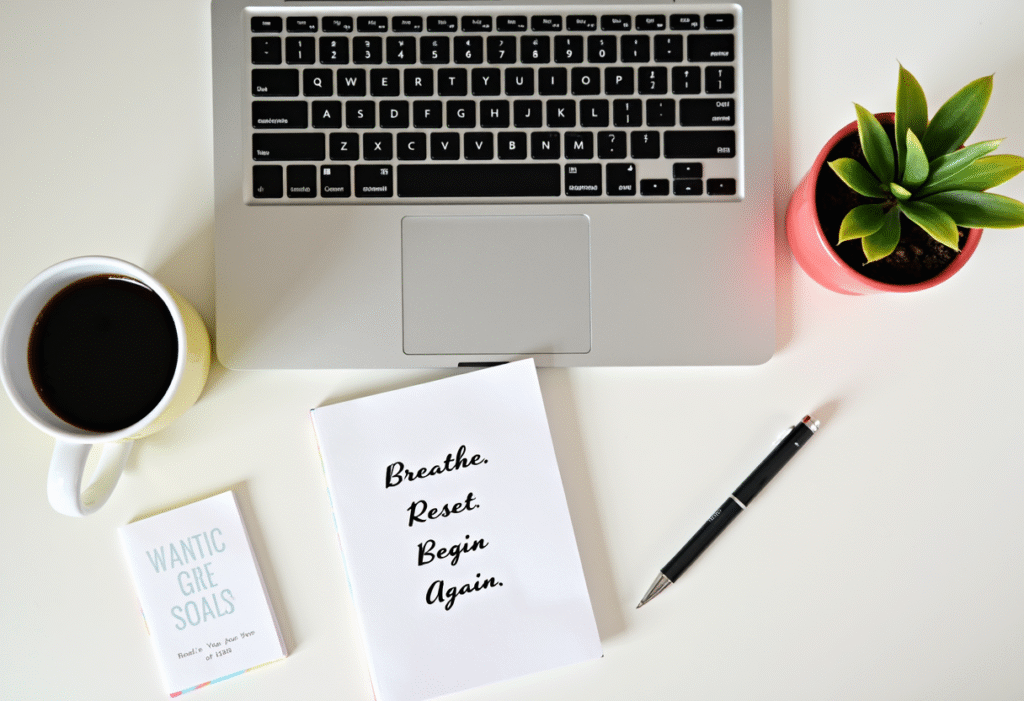The world of busy professionals rarely slows. Back-to-back meetings, tight deadlines, and the ping of yet another notification are enough to leave anyone feeling depleted. Traditional self-care advice (“take an hour for yoga,” “disconnect for the afternoon”) often sounds laughable when work and life constantly overlap. Yet, science confirms that micro-habits–tiny, intentional self-care actions– can create lasting change in both well-being and performance.
Below, discover a human-first approach: simple, practical micro-habits and mindshifts to help busy professionals build resilience, prevent burnout, and bring true balance to even the most relentless weeks.
Why Micro-Habits Matter More Than “Big” Self-Care
Forget the myth that only lengthy rituals reboot your energy. Research now confirms that small acts, done consistently, build emotional “muscle” and workplace resilience faster than sweeping lifestyle overhauls. When micro-habits are chosen intentionally, they help you reset stress instincts, manage emotional triggers, and maintain focus–no matter how packed your calendar is.

1. Boundaries: Your First Act of Self-Respect
Set clear lines between work and life–no checking emails after office hours, no work calls during family mealtime. Even a five-minute boundary (“I’m unavailable after 7 pm”) lets your brain (and team) know that your well-being matters.
Micro-habit: Before logging off, say out loud, “Work is done for today. Now, I am gonna focus on ___.”
2. The “Purpose Pause”: A Two-Minute Morning Reset
Each morning, ask: “What’s one value or strength I want to show today?” This anchors your focus in intention, not just reactivity, and trains your mind in resilience.
Micro-habit: Pause for two deep breaths before your first work task and state your focus for the day (“Today I’ll practice patience”).

3. The “Three-Breath Clear”: Quick Calm on Demand
Next time stress spikes–in a meeting, at your desk, or on a call–try this: inhale for four counts, hold for two, exhale for six. Repeat three times. This micro-mindfulness interrupts the anxiety loop, helping you respond rather than react.
Micro-habit: Set a phone alarm for 10:00, 2:00, and 5:00 as a reminder to breathe and reset.
4. Gratitude Scan: Shift Perspective in 30 Seconds
What’s going right, right now?
Pause midday and list three things (big or small) that are making your day easier. This rewires the brain to spot opportunity instead of getting stuck in negativity–a crucial trait of resilient people.
Micro-habit: Start your next lunch break by mentally listing three gratitudes.

5. Time-Blocking for Self-Care: Make It Non-Negotiable
If it’s not scheduled, it won’t happen. Block 10 minutes each day for yourself–call it a meeting if needed.
Micro-habit: Add “self-care” as a daily calendar event and guard it. Read, stretch, or simply do nothing and savor the pause.
6. Physical Micro-Breaks: Move the Stress Out
Regular short stretches–shoulder rolls, standing up between tasks, a brisk hallway walk–reset posture and release workday tension.
Micro-habit: After every meeting, stretch and take 5 slow breaths before sitting back down.

7. “One-Minute Reframe”: See Growth, Not Setback
When something triggers frustration or worry, pause and ask: “What’s one thing I can learn or do differently next time?”
This habit turns challenges into growth opportunities rather than stressors–a key marker of psychological resilience.
Micro-habit: End tough days with a 60-second “growth reflection”-jot down one learning from the day.
8. Boundaries with Technology: Detox Your Downtime
Don’t let work notifications or doom-scrolling invade your break time. Phones in another room, no-work zones at home, or using focus apps can minimize digital overload.
Micro-habit: Put your phone away during meals and for 30 minutes before bedtime to cue your mind for rest.
9. Protect and Prioritize Your Sleep
Quality sleep is the greatest self-care act. Research links any sleep deficit to higher stress, low productivity, and emotional overwhelm.
Micro-habit: Power down screens an hour before bed and create a wind-down ritual–soothing tea, soft music, or a short, calming read.

How To Make Micro-Habits Stick
- Start with one or two habits–don’t overhaul everything overnight. Build one into your day until it feels automatic, then add another.
- Pair new habits with existing routines (stretch after each Zoom call, gratitude before lunch, “purpose pause” on waking).
- Set reminders, post sticky notes, or use an app, but keep it light–small nudges boost consistency.
- Celebrate small wins. Small progress is still progress–and momentum builds resilience.
Final Thoughts: Becoming Unshakeably Resilient
Busy work weeks and ambitious goals don’t have to mean depletion or burnout. With micro-habits, self-care becomes realistic and resilient–not an add-on, but a foundation for consistent, sustainable success. The more small wins you create, the more easily your mind, body, and spirit can bounce back–whatever comes your way.
Begin today: pick one habit, jot it on a note, and do it before your next meeting. Breathe, notice one good thing, and stretch into the next hour with fresh resolve. The future is made from thousands of tiny moments–make them count, for yourself.
